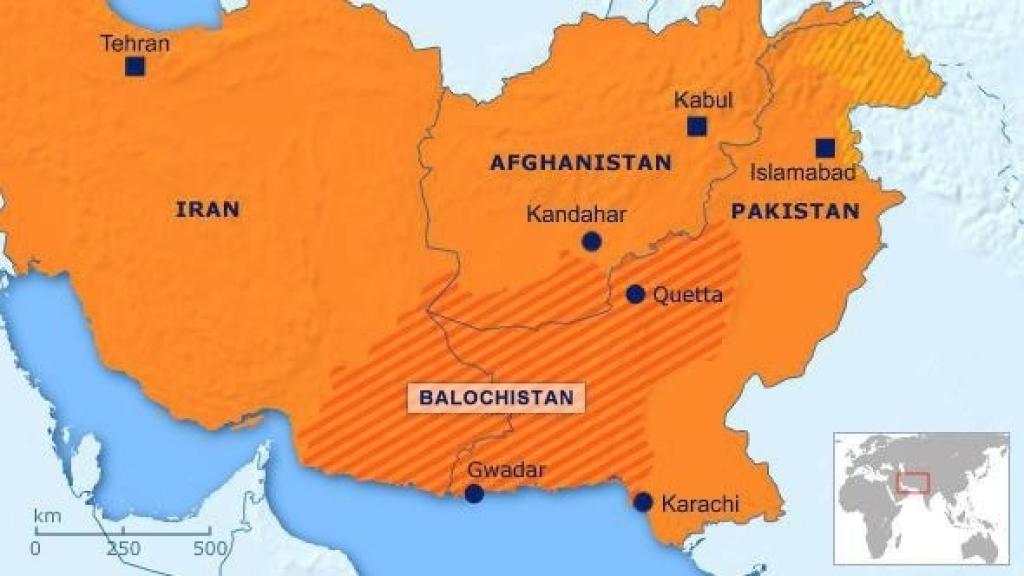The Pakistan-Iran border attacks in historic perspectives

Following a January 18 Pakistani air force strike on an Iranian border town that killed at least 9 — and which was carried out in retaliation for a January 16 Iranian missile attack on a border town in Balochistan that killed two children, among others — Pakistan and Iran have agreed to de-escalate the war threat and reestablish full-fledged diplomatic relations.
For now, there is a complete lull after both countries took revenge on their “enemies” in each other’s country, killing targets they claim are members of terrorist groups: namely, Jaish al Adl (Army of Justice) in Pakistan and Baloch separatists in Iran.
Iran said it targeted two Jaish al Adl bases in Pakistan after they had claimed responsibility for a police station attack in the Iranian town of Rask, in the southern border province of Sistan-Baluchistan, which killed 11 Iranian security personnel. The attack was condemned by Pakistan.
Pakistan’s attack on a “Balochistan separatist camps” in Iran took place as hundreds of Baloch activists are camping in Islamabad to demand authorities recover missing Baloch activists and stop extrajudicial killings. They came from the Turbat district of Balochistan in a long march that caught the attention of many internationally.
No matter who attacks, the Baloch people are the target on both sides. Some Baluchis are fighting against Pakistani atrocities while others are fighting Iranian colonial occupation over part of Balochistan — after World War I, British Imperialism gifted Western Balochistan to Iran.
The escalation of border tensions has to be understood in the context of Israel’s genocidal war on Palestinians. This was the first ever air strike and missile attack by Pakistan inside Iran. US imperialism would be very happy to see Iran busy defending itself from Pakistani attacks rather than helping Palestinians, mainly through its proxy organisations.
There is a long history of conflict between Iran and Pakistan. There was a guerilla war in Balochistan during the Zulfikar Ali Bhutto government. This started when the National Awami Party (NAP) was elected to provincial government but was subsequently overthrown by Bhutto at the instigation of the Shah of Iran in 1973. Many Baloch youths went into the mountains to fight back, while others migrated to Afghanistan and Iran.
During this decade, Iran sought to transport other tribes into the neighbouring province of Sistan-Baluchestan in order to convert the Baloch majority into a minority — as Israel did with the Palestinian majority.
The Shah was so terrified of growing Baloch resistance inside Iran that he asked Bhutto to take action against the provincial NAP government. The Shah was afraid that if Eastern Balochistan became independent, Western Balochistan, which is inside Iranian territory, would become part of it. Bhutto brutally crushed the Baloch resistance via army operations inside Balochistan. Since then, Baluchis have been targeted by both sides — but resistance continues in many forms.
Both countries blame each other for harbouring “terrorists” in their countries — religious groups in Pakistan and nationalist groups in Iran.
If the war escalates, it would damage both countries’ economies to a level never before seen. Iran could hit Pakistan’s oil supplies hard. Trade between the two countries would be halted. Iran already benefits from the “smuggling” of Iranian oil into Pakistan.
It is important to note that trade activities between Pakistan and Iran have continued as usual, and both countries have kept all crossing points open despite the airspace violation by Iran and subsequent retaliatory strike by Pakistan. Trade activities are continuing in border towns, including Taftan, Gwadar, Kech, Panjgur and Washuk.
Earlier in August 2023, the foreign ministers of both countries met in Islamabad to formulate a five-year trade plan with a trade goal of $5 billion.
It seems, the threat of a full-fledged war is over at present. Both the foreign minister of Iran and Pakistan have spoken to each other and emphasised “brotherly” relations. But this is just an interval in the conflict between the two so-called Islamic brother countries, who are waiting for a better moment to strike again once their internal crisis escalates.
The recent women’s movement against the Islamic Republic of Iran and the long march of Baloch activists in Pakistan are the real hope for progressive movements in both countries and internationally. The kidnappings and murders of Baluchis by both the Pakistani and Iranian governments must stop.